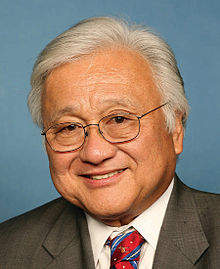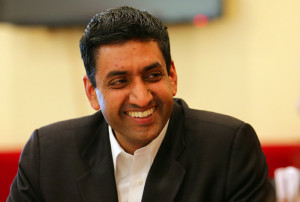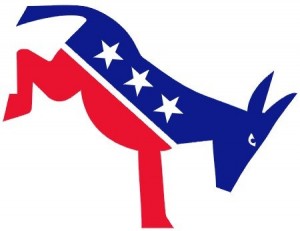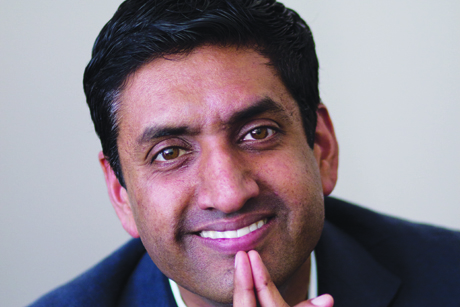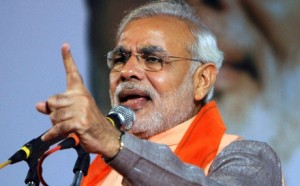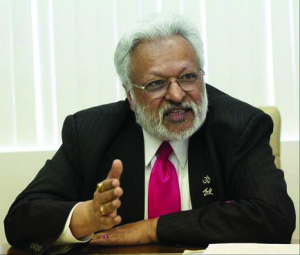The Congressional races in CD 15 (most of southern Alameda county) and CD 17 (Fremont/Newark & northern Santa Clara county) have suddenly become much more interesting with the addition of bonafide Republican candidates.
In CD 15, State Senator Ellen Corbett has issued a challenge to incumbent Eric Swalwell from the left. Swalwell ran against long-time Congressman Pete Stark in 2012 by presenting a clear challenge from the right and rallying Republican votes. He was helped in that endeavor by the lack of a Republican candidate in the race. Since then, Swalwell has turned to the Democratic center. He’s become an assistant minority whip and has voted with minority leader Pelosi in all but one or two occasions. He was recently endorsed by President Obama.
The Republicans in his district, who have long felt betrayed by Swalwell’s move leftward, have now put out one of their own to challenge him. Hugh Bussell, a Livermore resident and Vice Chair of the Alameda County GOP, pulled papers to run against Swalwell yesterday.
It’s been clear for a while that Corbett’s best hope from defeating Swalwell would be in the June elections, if a Republican challenger joined the fray. The district has roughly 40% Republican voters, so it’s likely that a serious Republican candidate will advance to the November general elections. Of the two Democrats, conventional wisdom would have Swalwell advancing. Not only is he the incumbent, but he has been a prolific fundraiser – with over $1M in contributions vs. Corbett’s $200K -; he’s also an energetic campaigner and master of social media. However, Swalwell was only able to garner about a quarter of the Democratic vote in 2012. He has not released poll numbers showing how he’s doing in the race, but the fact that he is so vehemently seeking the Democratic endorsement – he not only sought Obama’s endorsement but is also paying delegates to go to the Democratic Convention to vote to endorse him -, suggests he’s actually worried. Recent reports that he hired the daughter of a big campaign-contributor for a taxpayer-funded job, might hurt him with Democratic voters tired of corruption and fundraising scandals in their party.
Meanwhile, the race for CD 17 appears to be getting crowded – and more interesting. In addition to Mike Honda and Ro Khanna, six candidates have pulled papers to run in the race.
Republican anesthesiology professor Vanila Singh announced her run earlier this year and has already raised over $100K. A member of a Hindu nationalist organization, Singh was recruited to run to put pressure on fellow Indian-American Ro Khanna to support giving Gujarati minister Narendra Modi a visa to visit the United States. While Khanna has remained steadfast on his refusal to support Modi, Singh’s efforts at disrupting the election seem to have prompted another Indian-American candidate, Vinesh Singh Rathore, to enter the race. Rathore, a Google attorney who is registered (or was until recently) as a “declined to state”, already paid the $1740 filing.
Just yesterday, Sony recruiter Joel VanLandingham added his name to the list of candidates hoping to defeat Honda by paying the $1740 filing fee. While I haven’t yet determined what is VanLandingham’s party registration, his Facebook feed suggests he holds strong conservative views and is likely a Republican. Another Republican, Dave Chapman, who last challenged Ana Eshoo for CD 18 in 2012, has also pulled papers on the CD 17 race as has Mark Gonzales, a Republican patent agent from Newark.
Finally, Democrat Geby E. Espinosa has pulled papers to run for CD 17, in addition to Governor, Secretary of State and Insurance Commissioner in this election, and has run for numerous offices in the past.
While Rathore’s entrance into the race is not necessarily good news for Khanna – he may take some votes away from Vanila Singh, due to the name confusion between the two, but he might also take some third party votes from Khanna -, having a Republican join Vanila Singh in the race would help him tremendously. In a recent poll, Singh garnered 29% of the vote, but only when voters were told she was a Republican. That’s about the same percentage that the Republican candidate got in the June 2012 election. Multiple Republican candidates in the race would help split that portion of the vote, allowing Khanna to easily make it past the primary.
There is no certainty as to who the actual candidates will be in either race until they complete their filings. In CD 15, only Eric Swalwell has done so. In CD 17, Ro Khanna and Mike Honda seem to be the only ones to do so.

